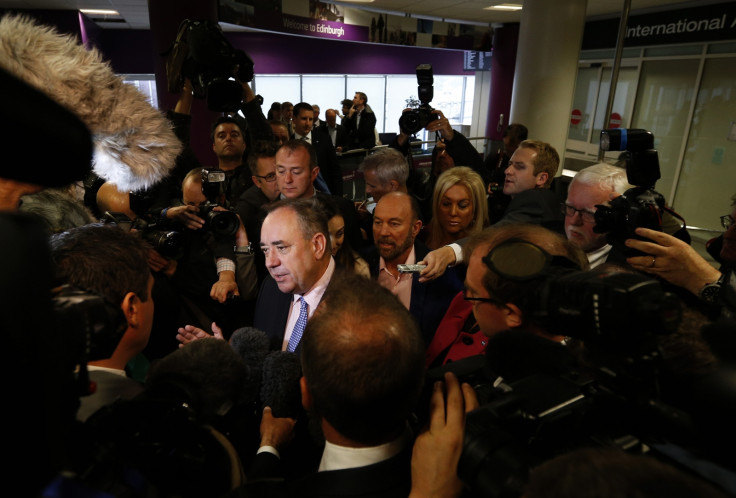Scottish Independence: NUJ Calls for End to 'Bullying and Intimidation' of Journalists

Journalists covering the Scottish independence referendum have faced "intimidation and bullying", according to the National Union of Journalists.
The union, which has more than 24,000 members in the UK, called on people on both sides of the campaign to "rein in the abuse" being directed at reporters covering the referendum.
The NUJ said it is also concerned about threats about future employment at the country's main broadcaster, BBC Scotland, as well as public labelling of journalists and programmes as being biased.
"People have the right to protest if they believe strongly about an issue, however protesters outside the BBC offices in Glasgow this weekend have demanded that journalists be sacked, for allegedly being biased in favour of the union," said Paul Holleran, NUJ Scottish organiser.
"Journalists in Edinburgh and Aberdeen were abused over the weekend when simply turning up to report on events organised by both sides.
"Others were on the receiving end of a range of abuse and intolerance on social media, some of which has been logged and maybe reported to the police.
"What is totally unacceptable is the use of threats of violence.
"The NUJ has history of acting on this type of behaviour and Police Scotland has been supportive and has intervened when we have previously pursued such action."
The comments come after 'Yes' campaigners unfurled a banner in Glasgow calling on the BBC's political editor Nick Robinson to be sacked and alleged that he was a "liar".
The action came after Robinson published a report on a press conference the Scottish National Party leader Alex Salmond held.
"Robinson asked Scotland's First Minister two questions at his press conference on 11 September," a BBC spokesperson said.
"Robinson's report showed the second question on trust, with a script line noting that Salmond had not answered that point.
"The BBC considers that the questions were valid and the overall report balanced and impartial, in line with our editorial guidelines."
The news comes after the UK fell from 29 to 33 in the global press freedom rankings in 2014, according to Reporters Without Borders.
The organisation said the decline in press freedom was in part thanks to the UK authorities being "obsessed with hunting down whistle-blowers instead of adopting legislation to rein in abusive surveillance practices that negate privacy".
© Copyright IBTimes 2024. All rights reserved.






